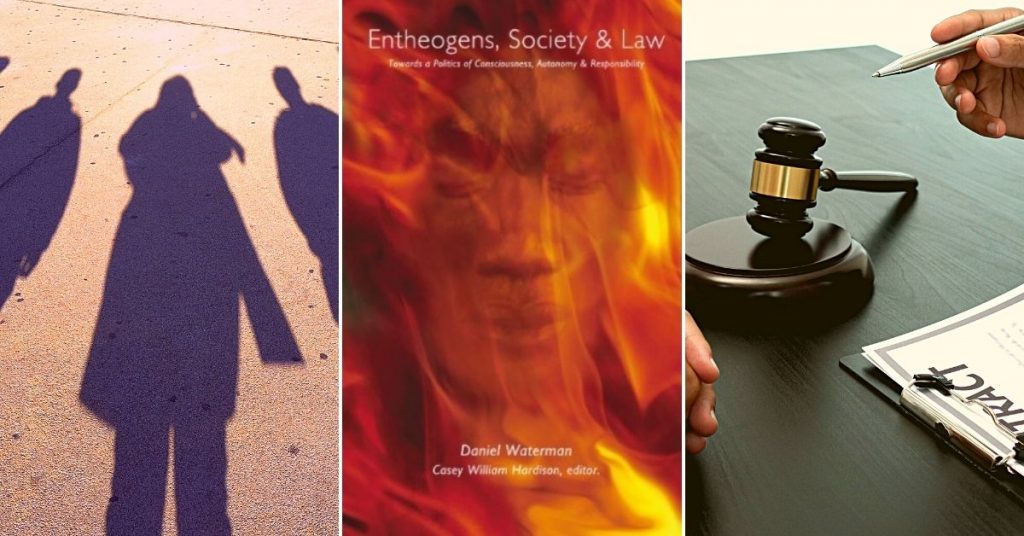Entheogens, Society & Law – Towards a Politics of Consciousness, Autonomy & Responsibility
 Entheogens, Society & Law takes a major step towards a comprehensive understanding of the human condition, elucidating how empathy, meaning and purpose emerge from three intersecting areas of human life: biology, consciousness and culture.
Entheogens, Society & Law takes a major step towards a comprehensive understanding of the human condition, elucidating how empathy, meaning and purpose emerge from three intersecting areas of human life: biology, consciousness and culture.
The term “entheogen” designates a class of psychoactive plant and substance uses that have played, and continue to play, an important role as catalysts of experiences of the “divine,” “sacred” or “numinous,” as well as in divination, healing and, more recently, psychotherapy. The authors expand on these ideas, borrowing from a wide range of disciplines — pharmacology, neurology, consciousness research, psychology, semiotics, theology and mythology — and immersing the reader in a radical and empowering exegesis of influential cultural myths such as that of Original Sin. The resulting insights have practical and ethical implications in many areas of contemporary society, including education, mental health, human rights and law.
Much of the literature on psychedelics and altered states of consciousness remains firmly entrenched in the dualistic logic of prohibition discourse. Unfortunately, this detracts from its ability to engage with the broader existential, ethical and humanitarian questions that, the author’s argue, any bona fide religious or therapeutic tradition needs to address. With its focus on ethics, Entheogens, Society & Law pursues a pragmatic inquiry guided by one paramount question: how can individuals take responsibility for their own lives and wrest power and authority from institutions that deprive them of the very liberties, e.g. to explore consciousness and alter mental functioning, upon which the exercise of responsibility is premised? This question leads to a critical examination of contemporary discourses on emergent ‘technologies of the self,’ human rights, the ‘common good’ — and the extents of state interference with the self-defining choices of sovereign individuals.
The theoretical questions raised by the meta-analysis presented here propose the possibility, if not necessity, of addressing the crises of modernity, including problems surrounding drug use, as a series of contingencies generated by the competing interests of individual’s search for a meaningful existence and powerful institutions exercising hegemonic control over what we can and cannot do towards that ends. This ethical inquiry exposes the faulty premises of exercises of authority and power by demonstrating the central role of human consciousness in the generation of values that ultimately define us and determine what we become. This places discussion on the nature of ‘mind-altering substances’ at the heart of contemporary discourses on human rights, offering empowering and inspiring insights into the future of humanity.
Entheogens, Society & Law — Towards a Politics of Consciousness, Autonomy & Responsibility, by Daniel Waterman, Melrose Books, 496 pages.
Read our review of this book
Buy this book at bookdepository.com and support the OPEN Foundation.

